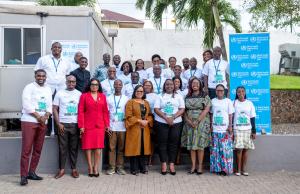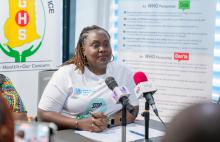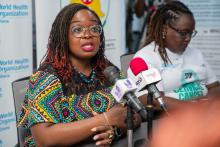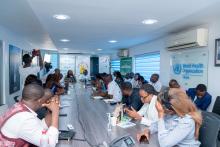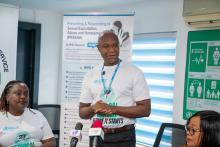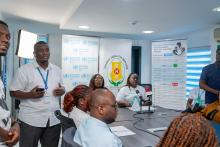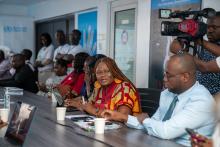Media Sensitised Ahead of HPV Vaccination Rollout in Ghana
In recent years, negative press and misinformation around vaccines have threatened public confidence, slowed uptake, and left many vulnerable to preventable diseases. With Ghana set to introduce the Human Papillomavirus (HPV) vaccine into its routine immunization programme in October 2025, health authorities are prioritising accurate, responsible reporting to ensure that no eligible girl is left behind.
The World Health Organization (WHO) Ghana, in collaboration with the Ghana Health Service (GHS), organised a media sensitisation session for journalists from across the country. The engagement highlighted the critical role the media plays in shaping public perception, countering misinformation, and driving vaccine acceptance.
Speaking at the meeting, WHO Representative to Ghana, Dr. Fiona Braka, stressed that journalists are indispensable partners in public health.
“The media’s voice can build trust, correct misconceptions, and empower families to protect their daughters. The HPV vaccine offers us a powerful opportunity to prevent cervical cancer, and journalists will be central in ensuring the message about this life-saving vaccine reaches every community”, she said.
Dr. Selorm Kutsoati, EPI Manager at the Ghana Health Service, noted that the media’s reach and influence will determine the success of the upcoming rollout.
“We are counting on journalists to help parents understand why this vaccine matters. Together, we can prevent cervical cancer and secure a healthier future for our girls,” she explained.
The sensitisation also allowed journalists to share their perspectives on how the training would influence their work.
Afia Amakwah, a presenter at Adom TV, said the session gave her the tools to report more effectively on the vaccine:
“This training has equipped me with the facts to address misinformation. As journalists, our reports can either create fear or build confidence—I now feel ready to ensure my coverage helps parents make informed choices”, she said.
Joshua Mensah, a presenter with GHOne TV, emphasised the need for continuous collaboration. “Health communication is not a one-off activity. This engagement shows us that we have a responsibility beyond the newsroom—to shape discussions in our communities and ensure accurate information is what spreads”, he said.
The meeting underscored that as Ghana prepares for the HPV vaccine rollout, success will not depend on health workers alone, but also on the ability of the media to amplify accurate information, fight misinformation, and encourage vaccine uptake nationwide.
For Additional Information or to Request Interviews, Please contact:
Abdul-Lahie Abdul-Rahim Naa
Communications Officer
WHO Ghana Country Office
Email: abdullahiea [at] who.int (abdullahiea[at]who[dot]int)
Tel: +233 20 196 2393
